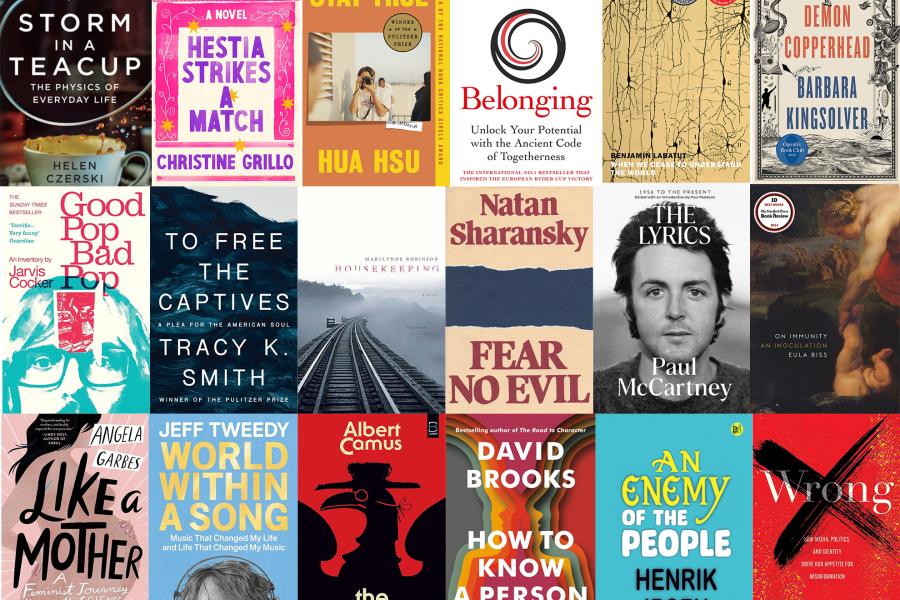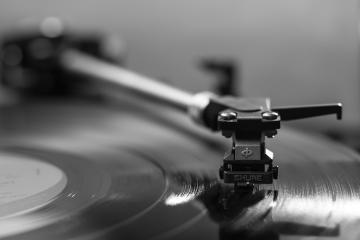As 2023 draws to a close, we reached out to scholars and experts from across Johns Hopkins University, asking about their favorite books from the past year. From novels to memoirs to essays to historical non-fiction, from newer titles to those that stand the test of time, their book selections span the spectrum of the human condition, at once captivating and inspiring us.
Yury Dvorkin
Associate professor | Whiting School of Engineering
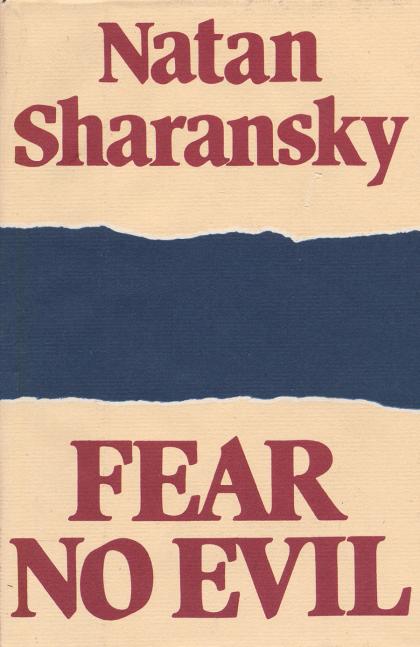
For me the most transformative book that I read this year is Fear No Evil (1998) by Natan Sharansky, a famous Soviet dissident and a "refusnik" who stood up to KGB with dignity and courage. He was eventually gulag'ed for his continuous fight to immigrate to Israel.
The book is horrifying and, at the same time, inspiring. Sharansky details the physical and psychological challenges he faced during his nine-year long imprisonment. During this time, no matter how hard KGB attempted to lure him into cooperation, including months-long solitary confinement, he did not yield. Following his release as part of a prisoner exchange, he became a prominent advocate for human rights and a public servant in Israel, helping millions of post-Soviet immigrants to settle in their historical but entirely foreign land. The book is a testament to human resilience and the triumph of freedom over oppression.
Hahrie Han
Director | Stavros Niarchos Foundation Agora Institute
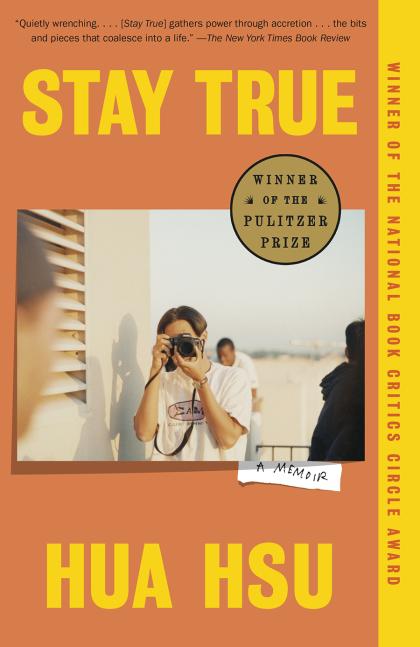
I loved the memoir, Stay True, by New Yorker writer Hua Hsu. Perhaps I felt a particular kinship to the book because he and I were both children of Asian immigrants coming of age around the same time. But I think his book speaks to themes that resonate much more broadly—about, as his father writes in a letter, the necessary challenge all humans face in seeking meaning, joy, and persistence in the face of life's inevitable contradictions. The book is a poignant, searching, but unsentimental exploration of how Hsu comes to understand the person he is and wants to be in relationship to others.
Amy Binder
Professor | SNF Agora Institute
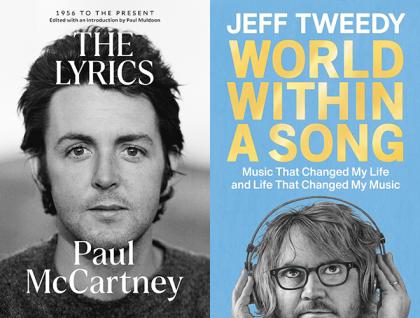
Jeff Tweedy is the front man of the exceptionally wonderful band Wilco, and, because life is unfair to us mere mortals, he is also a great writer. He has so far published a memoir, another manuscript about writing lyrics, and now World Within a Song, a book about songs he loves and why he loves them. From the Velvet Underground to 10cc to Mavis Staples, he helps us understands which music and musicians move him personally and professionally. I had to ration the chapters, I loved this book so much and didn't want it to end.
Another great music book of the year is Paul McCartney's reflections on 150 of his songs. In THE LYRICS: 1956 to the Present, he tells stories about the lyrics, which are set alongside reminiscences of his family, friends, and bandmates, especially John Lennon. The photo on the book cover is worth the price of admission alone. Look how bright his eyes are! Paul is good people, who also happens to be a genius, which is pretty inspiring these days.
Jennifer Baker
Associate vice provost | Director, Athletics and Recreation

I recently read Belonging: The Ancient Code of Togetherness by Owen Eastwood, and loved it! Rooted in Eastwood's own Maori upbringing, it explores the fundamental human need to belong, and then offers historic and cultural context to outline the ways in which we can create the conditions for thriving as individuals, teams, and mankind. Eastwood sheds light on many success stories of high-performance teams in athletics and business that have leveraged these principles in a way that is simple, but thorough.
Rebecca Wilbanks
Lecturer | University Writing Program
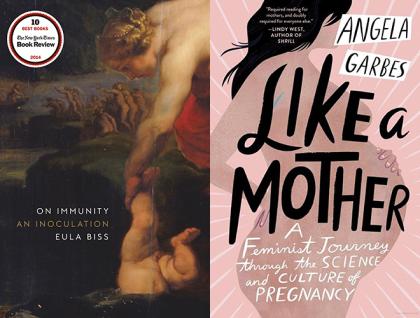
I've been on maternity leave this fall and fittingly, a book I recently read and enjoyed is Like a Mother: A Feminist Journey through the Science and Culture of Pregnancy, by Angela Garbes. I love thinking about how biology and culture co-evolve, and this book is a great reminder of how wild that interaction can be. For example, decades later, the brains and other organs of women who had given birth were found to contain biologically active cells from the children they carried. This is just one aspect of the shift in self that motherhood as Garbes depicts it entails.
Like a Mother reminded me of one of my all-time favorite books: Eula Biss's On Immunity: An Inoculation, which is a gorgeous meditation on the ties between mothers, children, and the wider social and biological ecosystem that is all the more relevant in our post-pandemic world.
Anna Kalbarczyk
Assistant director | Johns Hopkins Center for Global Health
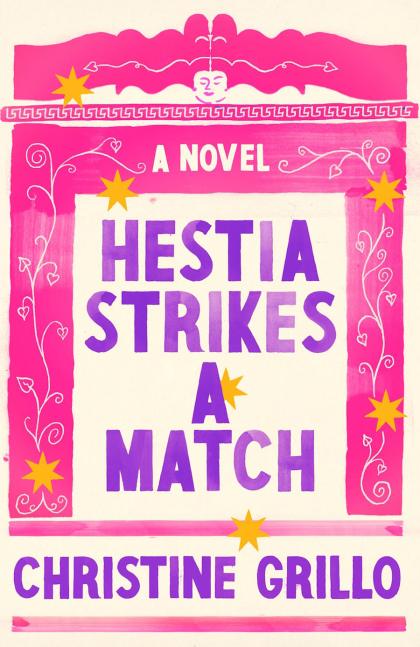
This year I thoroughly enjoyed reading Hestia Strikes a Match, by Christine Grillo, who also happens to be a writer with the Center for a Livable Future. I had the pleasure of seeing Christine do a reading at The Ivy Bookshop and was intrigued by the story (a woman looking for love and friendship in the midst of a modern day American civil war) and the authors' mindset during the pandemic, and Trump administration, which played a role in shaping the world. Many of us can relate to the main character—facing difficult relationships with family, friends, spouses—compounded by the complexities of our global political environment.
Joshua Sharfstein
Professor | Bloomberg School of Public Health
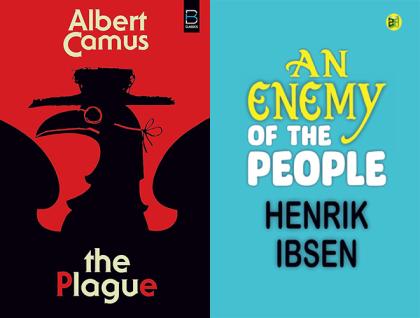
The Plague, by Albert Camus, and An Enemy of the People, by Hendrik Ibsen. These classic works of literature can help us to make sense of the bewildering and devastating COVID-19 pandemic. Set in the Algerian City of Oran in the 1940s, The Plague spotlights how people can be willfully ignorant of an unfolding catastrophe, and how external stresses like infectious disease exploit existing inequities in society. An Enemy of the People, which takes place in a small Norwegian town in the late 1800s, centers an idealistic health officer and his attempts to protect health at the expense of the local economy. I turn to these amazing works of literature to gain perspective and insight.
William Egginton
Director | Alexander Grass Humanities Institute
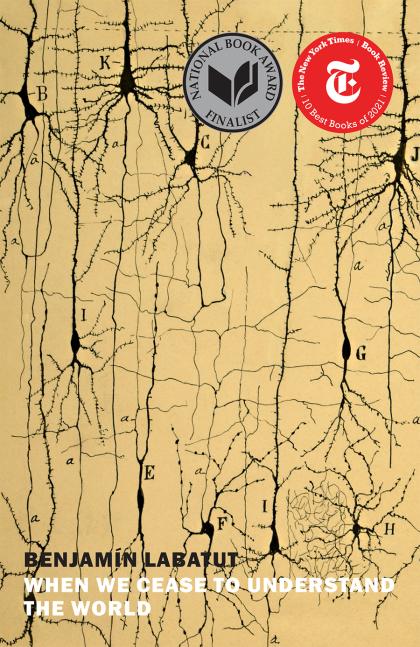
When We Cease to Understand the World by Benjamin Labatut (Adrian Nathan West, translator) defies categorization. Is it a novel? Is it philosophy? Is it narrative non-fiction? It's somehow all the above. Delving into the mysteries of humanity's drive to understand nature, Labatut explores a handful of real personalities from the 20th century as they struggled against the abyss toward which their very capacity to reason pushed them. Profound, funny, absurd, and gorgeously written, When We Cease to Understand the World awakens a sense of wonder at the complexity of the universe, and the power of the human intellects that grapple with it.
Barbara Kline Pope
Executive director | Johns Hopkins University Press

Before we gather this holiday season with family and friends, I recommend that you read these insightful, evidence-filled new books. In Wrong: How Media, Politics, and Identity Drive Our Appetite for Misinformation, Dannagal Goldthwaite Young brings us her own research and that of others to explain the forces that drive us, at one time or another, to want to embrace untruths. David Brooks' How to Know a Person: The Art of Seeing Others Deeply and Being Deeply Seen has much in common with Wrong. At the heart of both books is an argument for human connection, intellectual humility, and empathy.
When your brother-in-law announces, in the middle of a festive dinner, that the COVID vaccine has harmed more people than it has helped, take a deep breath and put into action what you learned from reading these profoundly relevant books.
Paul Ferraro
Bloomberg Distinguished Professor of Human Behavior and Public Policy | Carey Business School and the Department of Environmental Health and Engineering
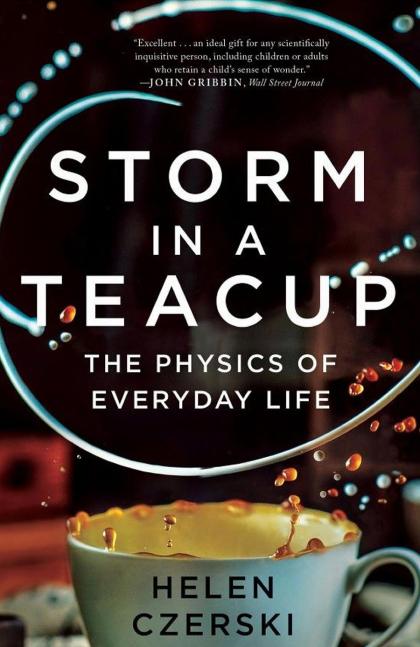
If my high school physics professor had just given me a few chapters out of Helen Czerski's debut book Storm in a Teacup: The Physics of Everyday Life rather than asking me to calculate where a fly traveling on a plate carried by a waiter walking on a moving ship would end up after 60 seconds, I think my career trajectory may have been quite different. The best teachers are those who combine a strong grasp of the intuition behind powerful scientific theories and an ability to meld that intuition to engaging examples from our daily lives. Helen Czerski is such a teacher. Her book has no pictures, but her words conjure vibrant images in the reader's mind. I found the nine chapters to be entertaining and educational, but more importantly, they changed how I perceive the world around me, from the mundane—that coffee stain on my desk—to the magnificent—the redwood trees in California.
Heidi Herr
Librarian |Sheridan Libraries
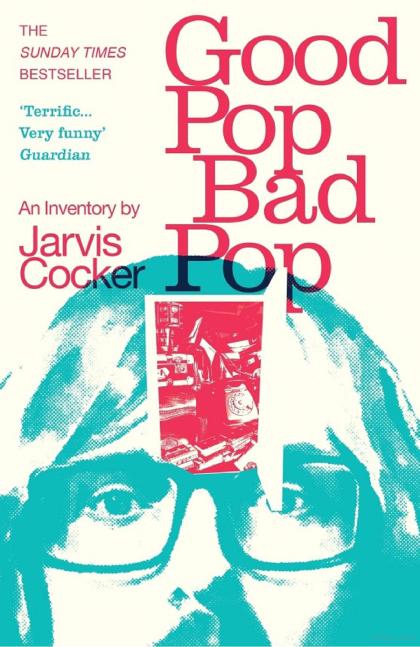
Over the past few months, I've been dealing with the baggage of my childhood. Literally. Old Lady Baltimore suitcases that I used to buy back when junk shops were a thing, which I then filled with my own junk whenever I had to clean my room. Opening the suitcases now is so peculiar, as I had items in there that I have no recollection of ever acquiring, yet somehow are on brand for me, like a monkey carved out of a coconut (when and why?). Then stumbling upon the horrifying and irrefutable evidence that I was into Care Bears as a kid. So ghastly!
The cringe and the joy and the weirdness of exploring one's past through ephemera is why the book I most enjoyed reading this year is musician Jarvis Cocker's unusual memoir, Good Pop Bad Pop. The conceit of the book is that Cocker, founder of the band Pulp, is finally emptying a loft full of forgotten boxes and garbage bags and deciding what to keep and what to toss. Cocker refers to the book as an inventory, with each piece of ephemera, ranging from an empty tin pencil box to his childhood band manifesto, documented via a photograph and musings that are microhistories of obscure moments in his life or popular culture in general. The text is enhanced by the book's amazing design, courtesy of Julian House, including a clever dust jacket with a well-placed cut-out. Unlike other memoirs by musicians, Cocker's approach does not demand nor expect fealty to Pulp or any other of his artistic endeavors. Instead, he offers the reader a glimpse into his life and inspirations while framing each piece of ephemera discussed as a token of a lost world, which we can each recreate by mining the sundry pieces of our past.
Lindsay Smith Rogers
Director of Content Strategy | Bloomberg School of Public Health
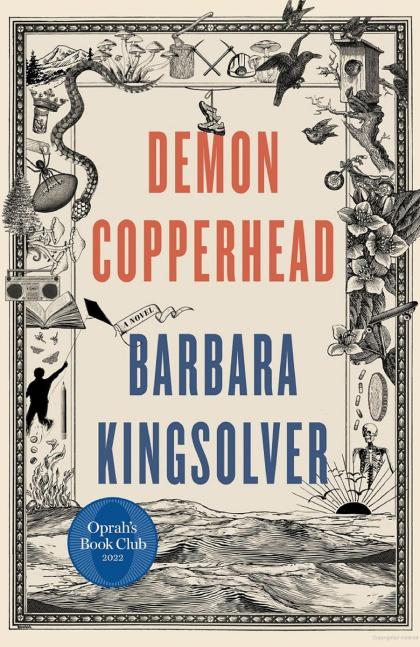
Demon Copperhead by Barbara Kingsolver is an updated take on David Copperfield that takes place in a small West Virginia town during the opioid crisis' peak. Through the narration of an endearing young protagonist, it becomes apparent how power structures, neglect, and public narratives have fed the opioid and foster care crises in Appalachia. Without relying on stereotypes, Kingsolver exposes truth and tired tropes in ways that allow the characters to reclaim some of their own power.
I lost count of the number of times this tragicomedy broke and subsequently mended my heart between the first and last chapter. Regardless of your thoughts on writing Dickens fanfic, this Pulitzer winner is an excruciating tale well told by a master writer who asks that you be brave and open enough to receive it.
Martha S. Jones
Professor | Krieger School of Arts and Sciences
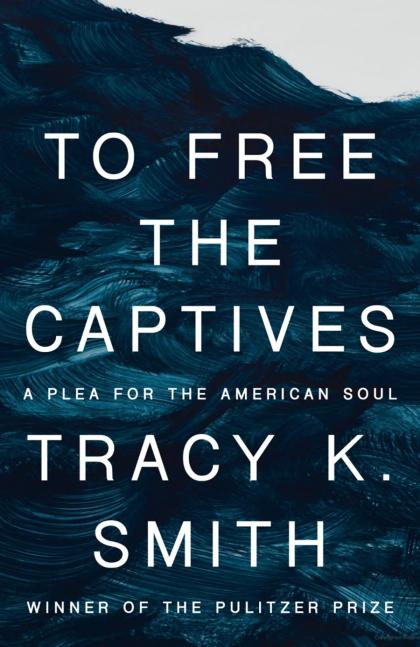
Throughout the fall, whether pre-occupied with teaching or my own research and writing, I collect a stack of books with the promise that at the December break I'll finally get to some of the best reads of the year. At the top of that pile was the latest from poet and memoirist, Tracey K. Smith, To Free the Captives: A Plea for the American Soul. An elegantly crafted collection of interwoven essays, Smith plumbs the depths of her own life and those of her ancestors, to show us how history and looking backward long has been for Black Americans a way forward. There is nothing saccharine about Smith's deep dive into motherhood, professional life, or the excesses of wine. Still, she persuades me that woven through our most closely held depths are threads of hope for, as she puts it, "meeting the urgencies of our present." Just now I am finishing my own family memoir, making me all the more grateful for this gift of a book which encourages each of us to release the power in our own stories.
Eric Puchner
Chair | Writing Seminars
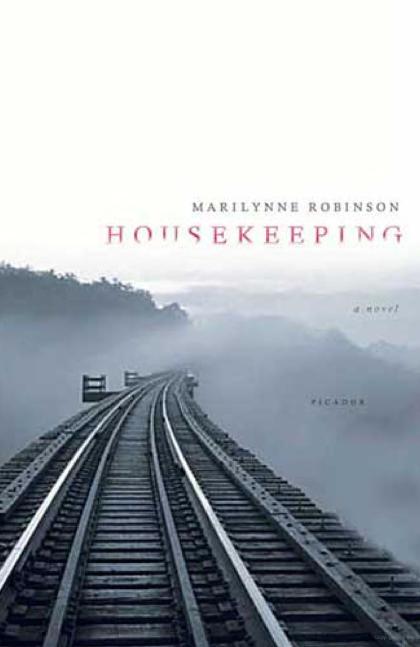
The best novel I read this year was published in 1980, but Housekeeping by Marilynne Robinson is so timeless in the dreamlike clarity of its prose that it feels like it could have been published last year. On the surface, it's about two orphaned sisters and the eccentric, transient, perhaps mentally ill aunt who ends up failing, both terribly and wonderfully, to take care of them. On a deeper level, it's about the precarity of everything we hold most dear: love and family and our desire to make a permanent home on earth. And yet it's not depressing—it's a thing of stupendous beauty. It's the most convincing piece of climate fiction I've ever read, written well before the genre existed.
Ludmila Poliakova
Lecturer | Department of Economics
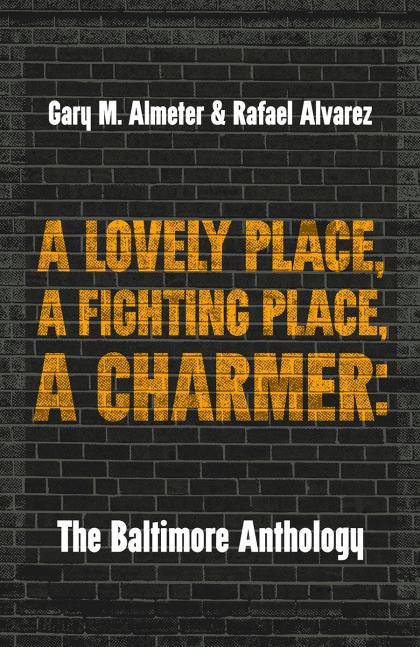
Posted in Science+Technology, Voices+Opinion, Politics+Society




